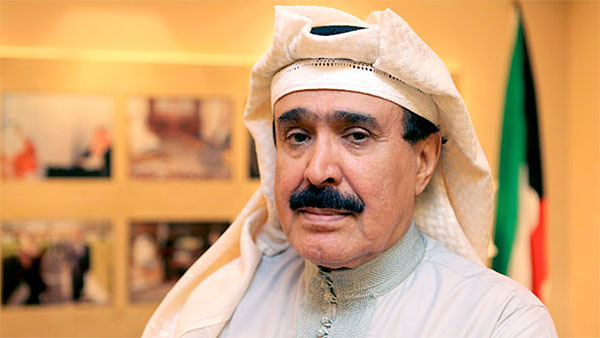Arab Times
By Ahmed Al-Jarallah
ALGERIANS did not protest against reelection of current President Abdel-Aziz Bouteflika until their patience wore thin on policies which continued for two decades without enabling them to exit from the perennial livelihood crisis.
Algeria is an oil-rich country and it has a significant number of youths looking for job opportunities in order to protect themselves from poverty. In the same country, there is a class of people who control everything.
The recent events proved to Algerians that the president is just a face of another force dominating the political decision of the country. This force is distributed between the Army and the National Liberation Front (NFL) which has been in power since the 1960s.
This revelation became evident after the meeting of Bouteflika with Algerian diplomat Lakhdar Brahimi and his recent statements, through which everyone understood that the top man does not know what is happening around him.
Since the beginning of the ‘Chronicle of the Years of Fire’ – after the 1992 elections, Algeria endured civil war which is being utilized by the ruling force to cement its authority on State domains.
The force pursued regional and Arab policies which were very far from the aspirations of the people, particularly in terms of sponsoring the Polisario Front (Sahrawi rebel national liberation movement). This movement is keen on ending the Moroccan authority in the Western Sahara and closing borders between the two countries.
It also adopted a policy that is discordant with other African countries – a negation of the historic Moroccan stance on supporting the Algerian revolution against French occupation and the enormous price that the Kingdom of Morocco paid in the early stages of its independence.
This is in addition to the malicious regional politics, which is not in line with Arab solidarity, especially in establishing relations with the enemy of Gulf countries – the regime of Iran; its support for unrest in countries that witnessed the Arab Spring, and its obscure position on events in Libya and Tunisia.
All this made it more isolated from the Arab world. This reflected negatively on its economic status and its labor force is not welcomed in those countries.
Algeria is seventh in oil reserves and fourth in gas in the Arab world. Its annual revenue is enough to launch a huge development workshop. This country can embark on a major educational movement; but surprisingly, despite its vast wealth, its illiteracy rate is 12.3 percent and unemployment rate is 11.1 percent.
This condition triggers increase in crime rate which ranked 49th globally due to poverty and widespread corruption in State institutions.
All these factors prompted Algerians to go out into the streets to protest against continuation of the status quo because cracks are showing, specifically in the midst of continuous failure to secure job opportunities for youths who constitute about 45 percent of the population. This is in addition to the absence of proper planning and centralization which the NLF and the Army are using to control the State domains.
Algeria appears to be ruled through institutions, but it is actually governed by ghosts who have mastered the art of hiding.
Therefore, Algerians are currently refusing to extend the tenure of Bouteflika by postponing the presidential elections indefinitely. This is perceived as putting the country into the hands of the chaos demon; hence, the recurrence of the ‘Chronicle of the Years of Fire’ and the decade-long civil war with a death toll of 1.5 million, more than the losses during the liberation war which resulted in a million martyrs.
It is imperative for decision makers in Algeria to look into the problems and avoid steering their country into war for the sake of ghosts clinging on to power.
By Ahmed Al-Jarallah
Editor-in-Chief, the Arab Times



